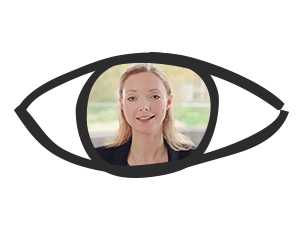Heating our cities with heat from the earth
In a first for the Group in France, Veolia’s Energy activity is managing a district heating grid sourced by deep geothermal energy in Blagnac, a suburb of Toulouse. An extension project is planned that will use green energy to heat Toulouse Airport. Steeve Moratille (project director) and Nicolas Kockler (project engineer) tell us about it.

Steeve Moratille
Project Director - Energy
16 years at Veolia - France
Quiet strength

Nicolas Kockler
Project Engineer - Energy
7 years at Veolia - France
Do anything that is useful. Put your name on anything that is good.

What was the origin of this project?

Steeve
In France, the Energy activity of Veolia was launched about three years ago, and we quickly realized there were opportunities in the heating sector. In 2017, we submit a bid for a call for tender put out by the city of Toulouse to manage a geothermal heating grid.

Nicolas
In the existing installation, hot water is pumped from the earth at a depth of 1500 m and is then distributed to deliver heat to almost 2000 homes, as well as schools and other public buildings. The client wanted to improve this heating grid and expand it, in part by connecting it to the airport, a big heating consumer.
How is it innovative?

Steeve
The client chose our solution because it increases the proportion of renewable energy, develops the grid for new users, and optimises the existing installations. All at a competitive price.

Nicolas
Since the geothermal source will not be enough to supply heat to all the new customers, we’re going to build a wood-fuelled biomass boiler near the airport. This will allow us to increase the share of renewable energy from 67% to 80%.
What did you each bring to the project?

Steeve
Nicolas’s technical expertise allowed him to analyse the existing grid and find the best solutions for developing and optimising it. We’ve been working together for seven years now, and he really succeeded in capitalising on our experience in the field.

Nicolas
As the project director, Steeve oversaw everything. He particularly focused on the biomass boiler, but it wasn’t a question of separate jobs: we spent a lot of time discussing the project as a whole.
What has been most rewarding?

Steeve
I’m really proud of the fact that this is the first heating grid that Veolia has taken over in France. Also, it’s been very interesting to work with geothermal energy, a clean natural resource.

Nicolas
In addition to the environmental aspect, we also lowered the price by an average of 20% for users, which decreases energy insecurity. For example, a household with an annual bill of 500 euros will be able to save 100 euros each year.
What are the positive impacts?

Steeve
The grid will allow more users to get their heating from renewable energy sources, reducing fossil fuel consumption. The result: 3600 tonnes of CO2 emissions avoided each year, the equivalent of the CO2 emitted by 1800 cars.

Nicolas
In addition to the environmental aspect, we also lowered the price by an average of 20% for users, which decreases energy insecurity. For example, a household with an annual bill of 500 euros will be able to save 100 euros each year.
What are the next steps?

Steeve
We’re currently implementing Veolia Hubgrade, a smart monitoring tool that provides a global view of the energy needs of all the grid’s users. This will enable us to advise our customers and help them consume less energy.

Nicolas
One of the next phases of the project is to restore a second geothermal well that will allow a nearby swimming pool to reopen.
Be inspired by our Resourcers’ stories
Our job offers
are now available on...
We are recruiting various profiles in different fields:
IT engineers, frontline positions…




